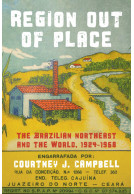Google Books previews are unavailable because you have chosen to turn off third party cookies for enhanced content. Visit our cookies page to review your cookie settings.
Poverty of Democracy (Paperback)
The Institutional Roots of Political Participation in Mexico
Imprint: University of Pittsburgh Press
Series: Pitt Latin American Series
Pages: 304
ISBN: 9780822960782
Published: 28th November 2010
Script Academic
Series: Pitt Latin American Series
Pages: 304
ISBN: 9780822960782
Published: 28th November 2010
Script Academic
You'll be £45.00 closer to your next £10.00 credit when you purchase Poverty of Democracy. What's this?
+£4.99 UK Delivery or free UK delivery if order is over £40
(click here for international delivery rates)
Need a currency converter? Check XE.com for live rates
(click here for international delivery rates)
Need a currency converter? Check XE.com for live rates
Political participation rates have declined steadily in Mexico since the 1990s. The decline has been most severe among the poor, producing a stratified pattern that more and more mirrors MexicoÆs severe socioeconomic inequalities. Poverty of Democracy examines the political marginalization of MexicoÆs poor despite their key role in the struggle for democracy. Claudio A. Holzner uses case study evidence drawn from eight years of fieldwork in Oaxaca, and from national surveys to show how the institutionalization of a free-market democracy created a political system that discourages the political participation of MexicoÆs poor by limiting their access to politicians at the local and national level. Though clean elections bolster political activity, Holzner shows that at the local level, and particularly in MexicoÆs poorest regions, deeply rooted enclaves of authoritarianism and clientelism still constrict peopleÆs political opportunities.To explain this phenomenon, Holzner develops an institutional theory in which party systems, state-society linkages, and public policies are the key determinants of citizen political activity. These institutions shape patterns of political participation by conferring and distributing resources, motivating or discouraging an interest in politics, and by affecting the incentives citizens from different income groups have for targeting the state with political activity.HolznerÆs study sheds light on a disturbing trend in Latin America (and globally), in which neoliberal systems exacerbate political and economic disparities and create institutions that translate economic inequalities into political ones.
Other titles in the series...
Other titles in University of Pittsburgh Press...





















